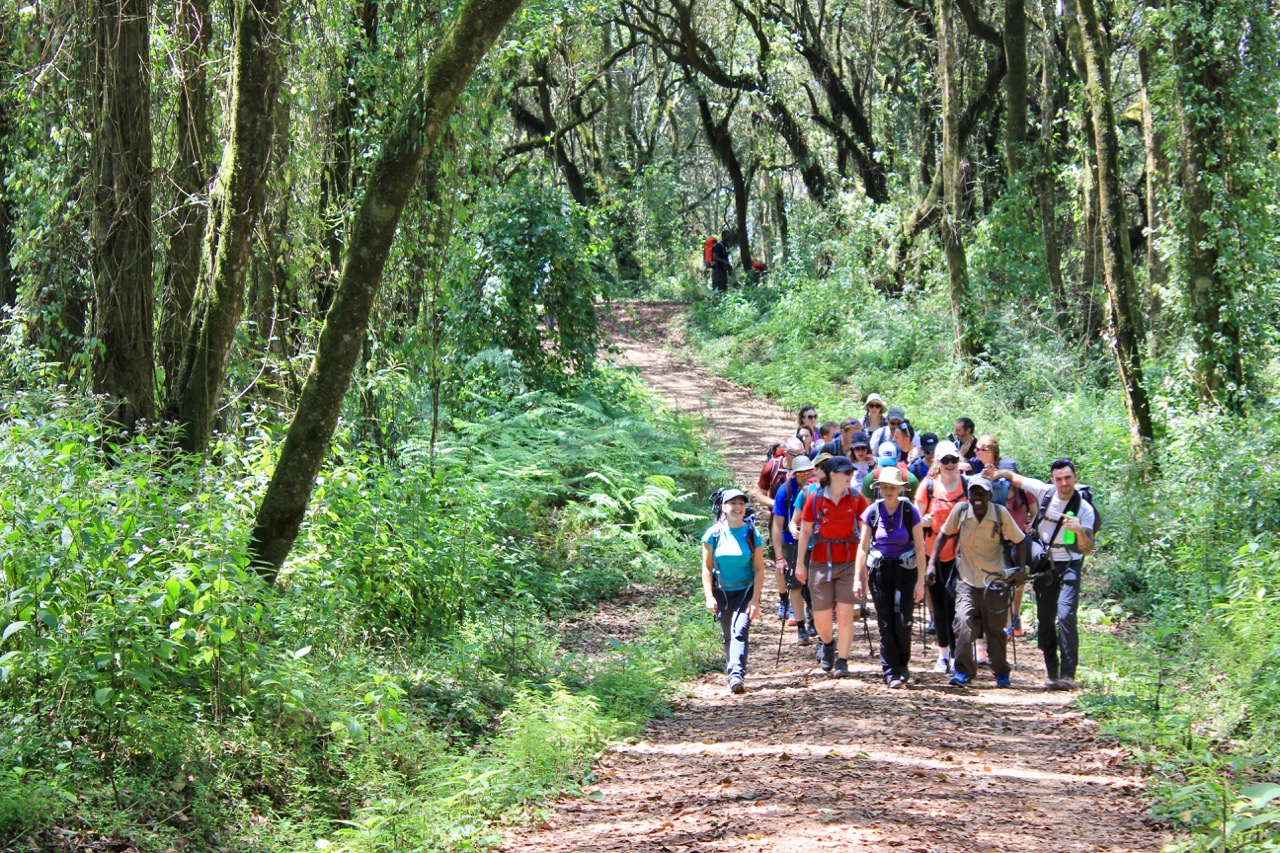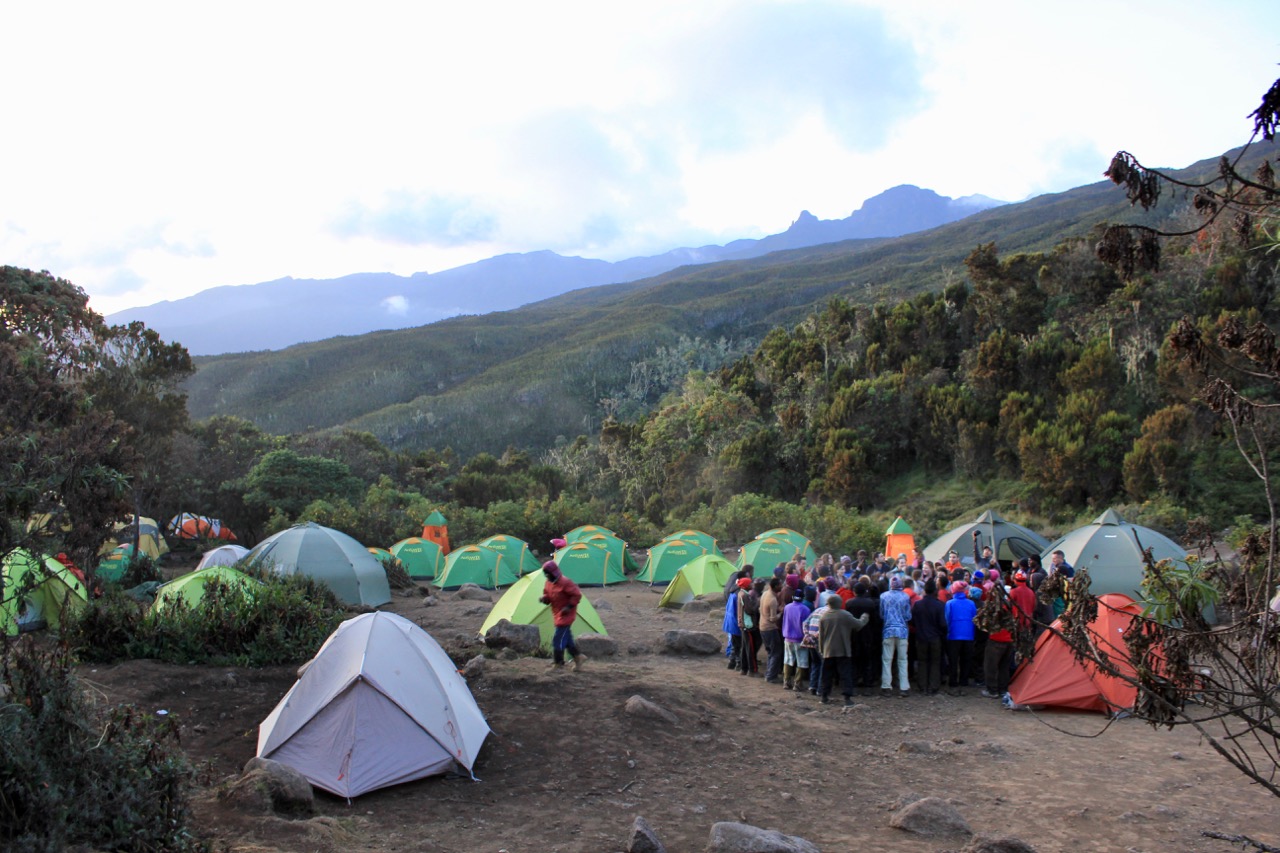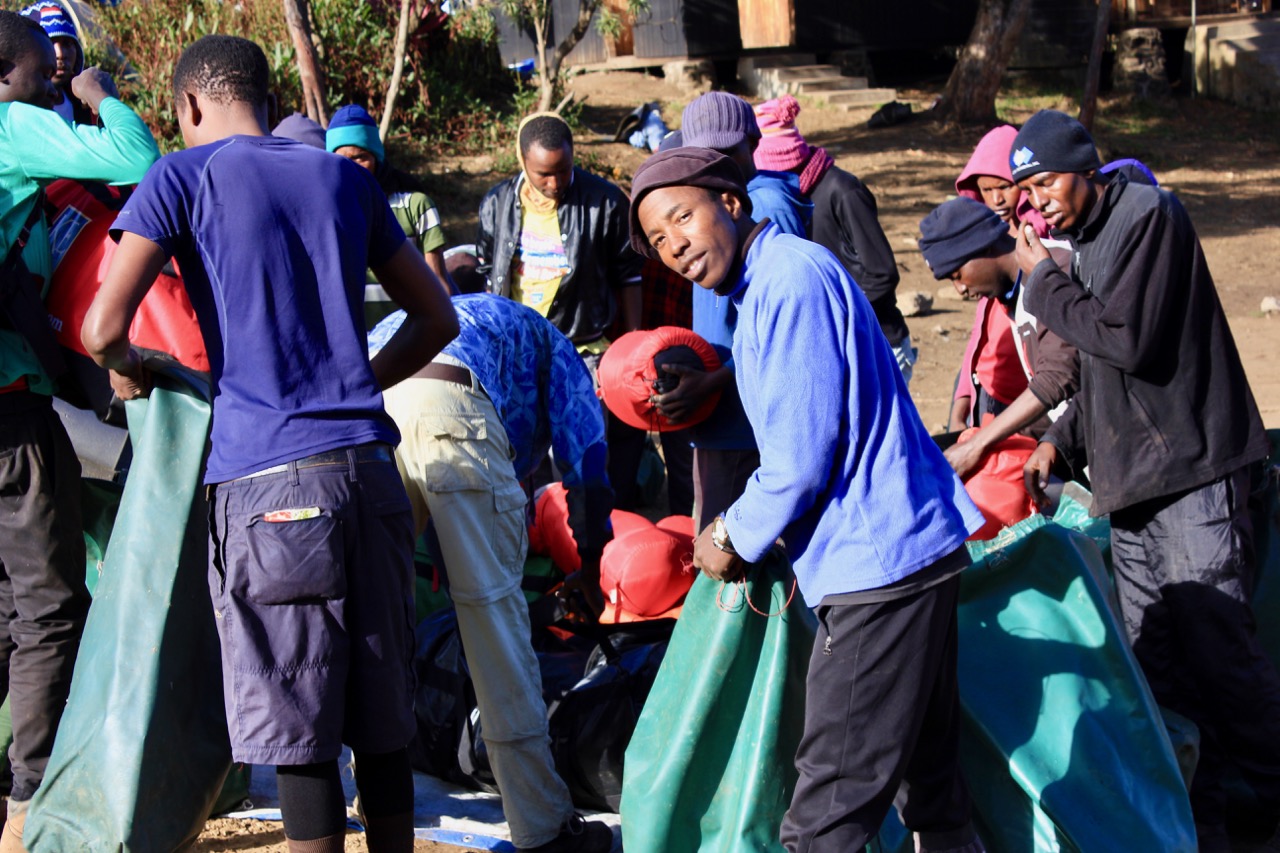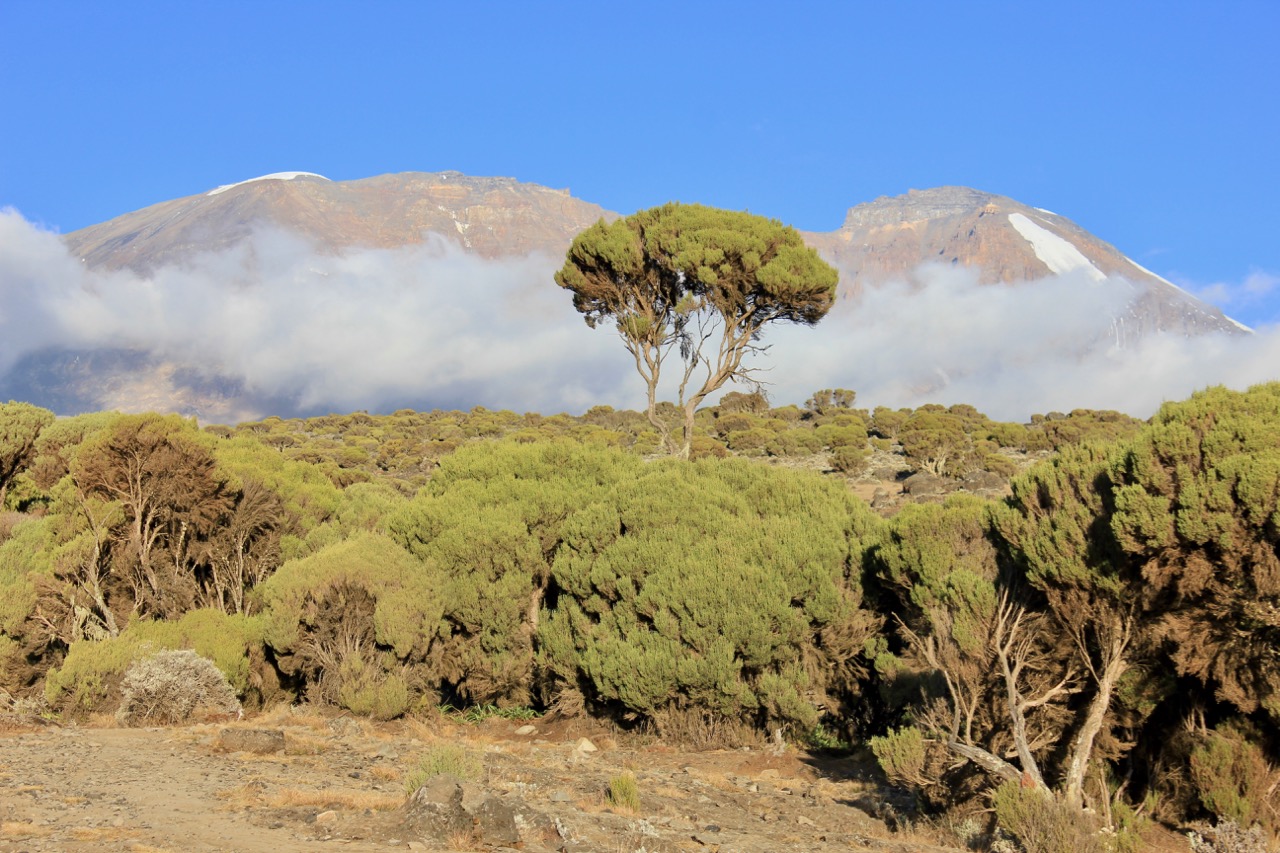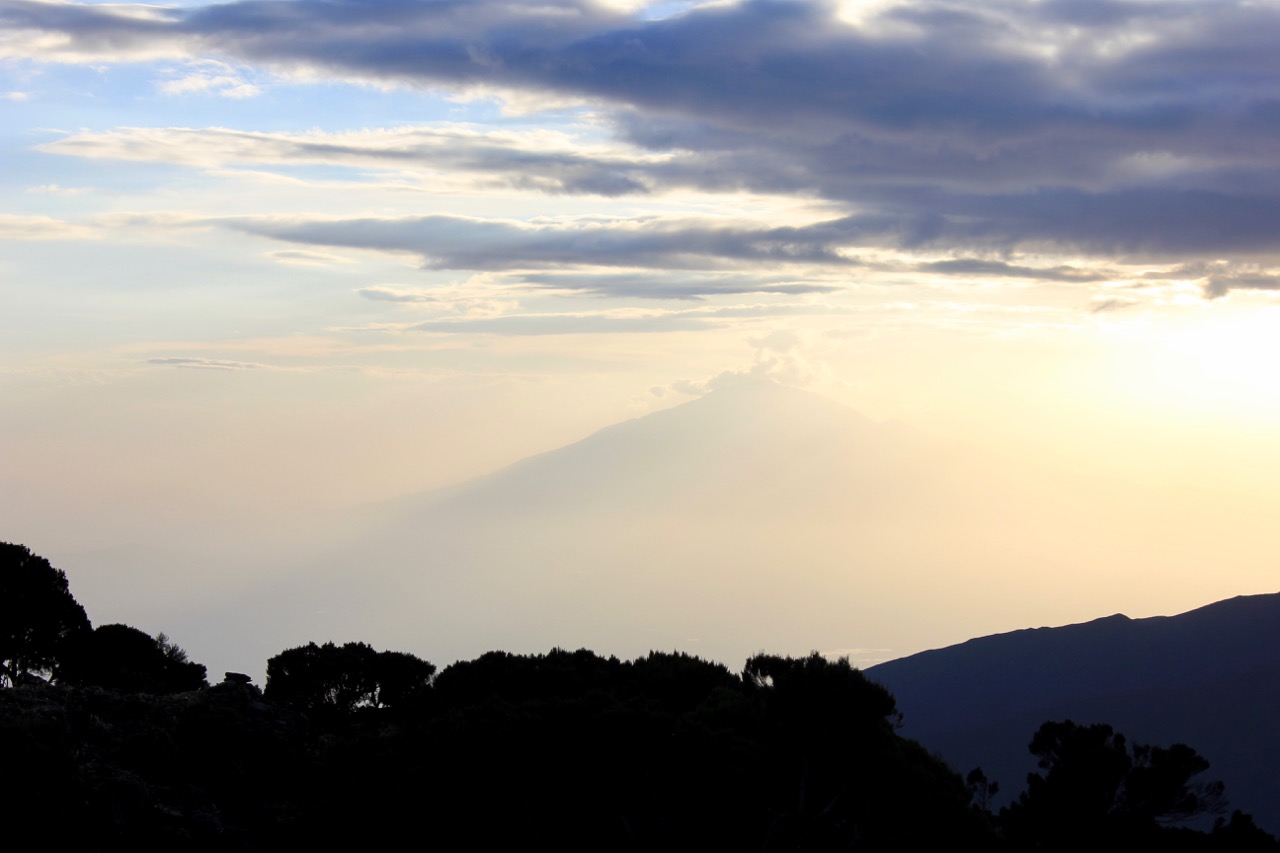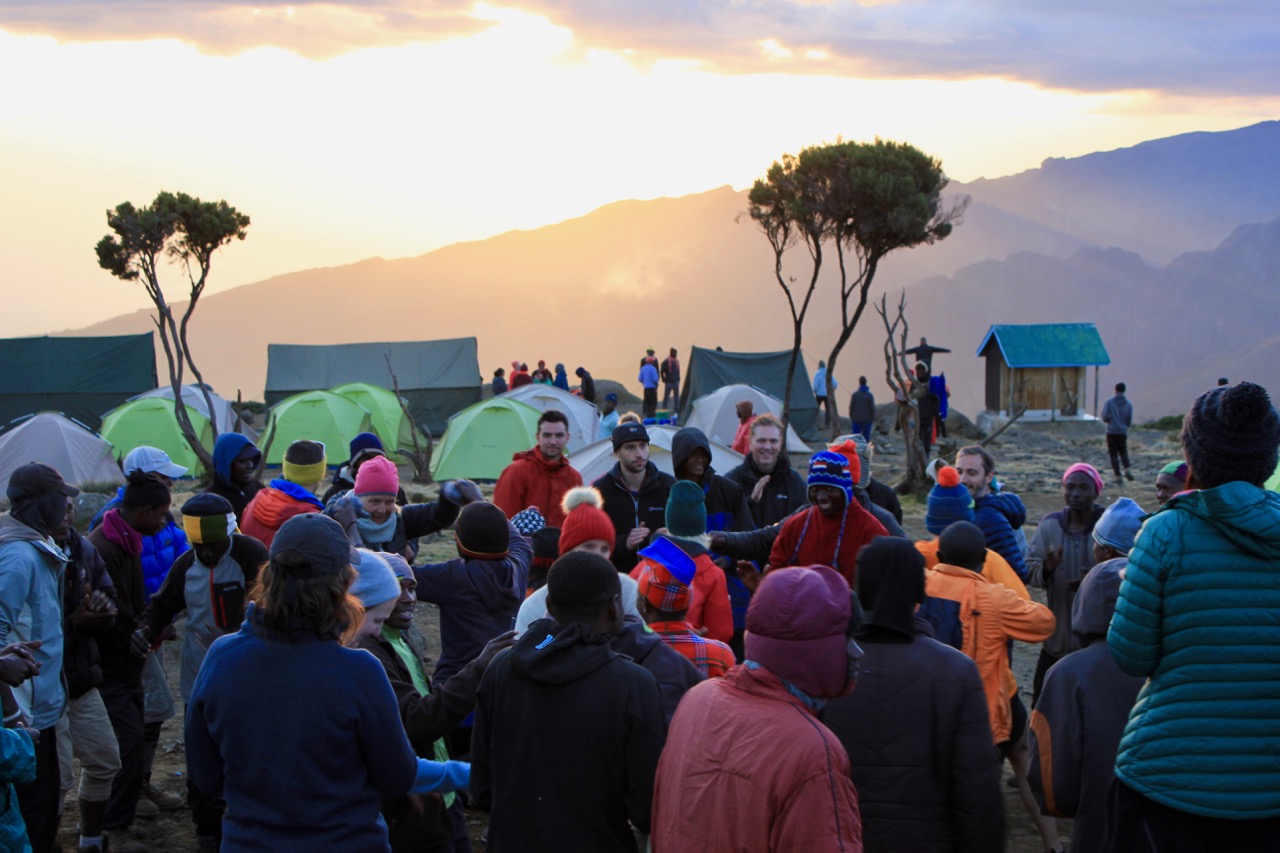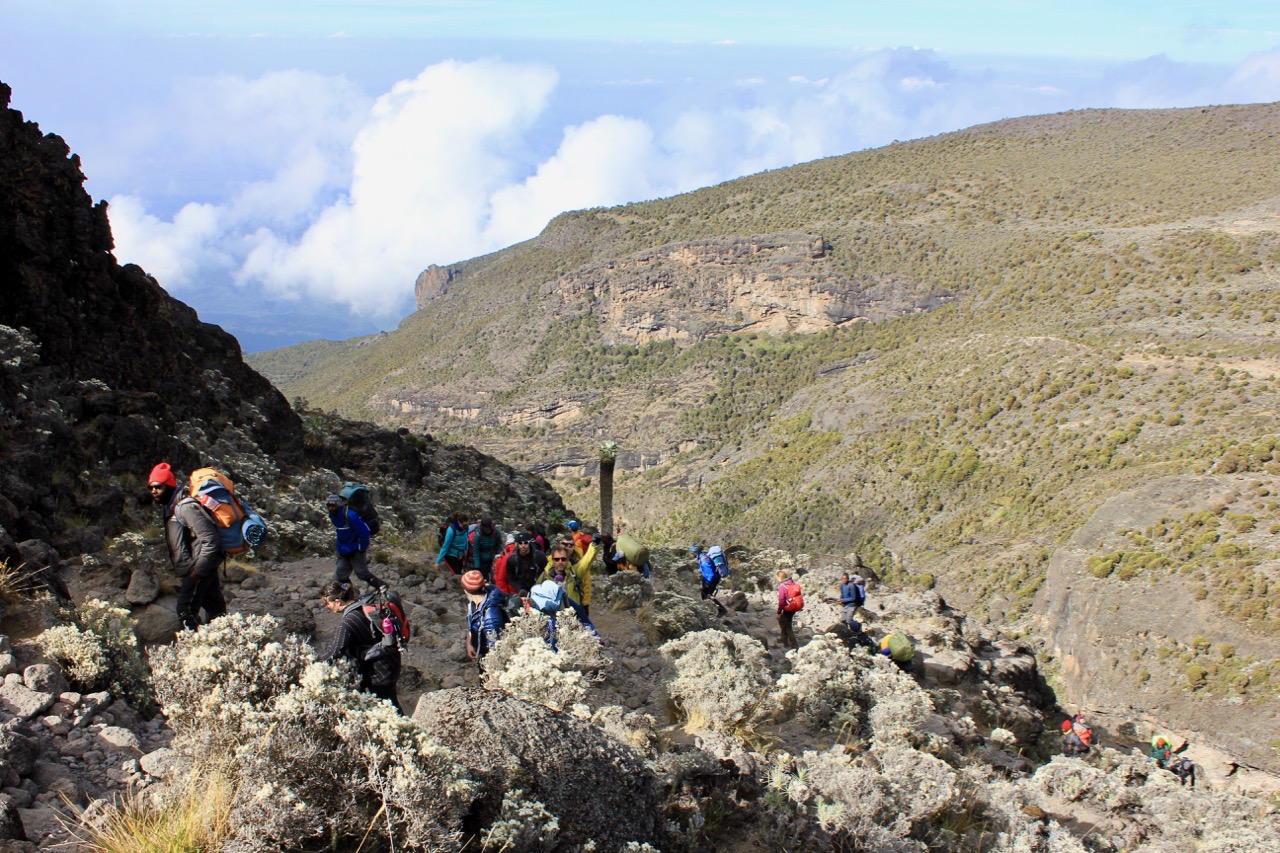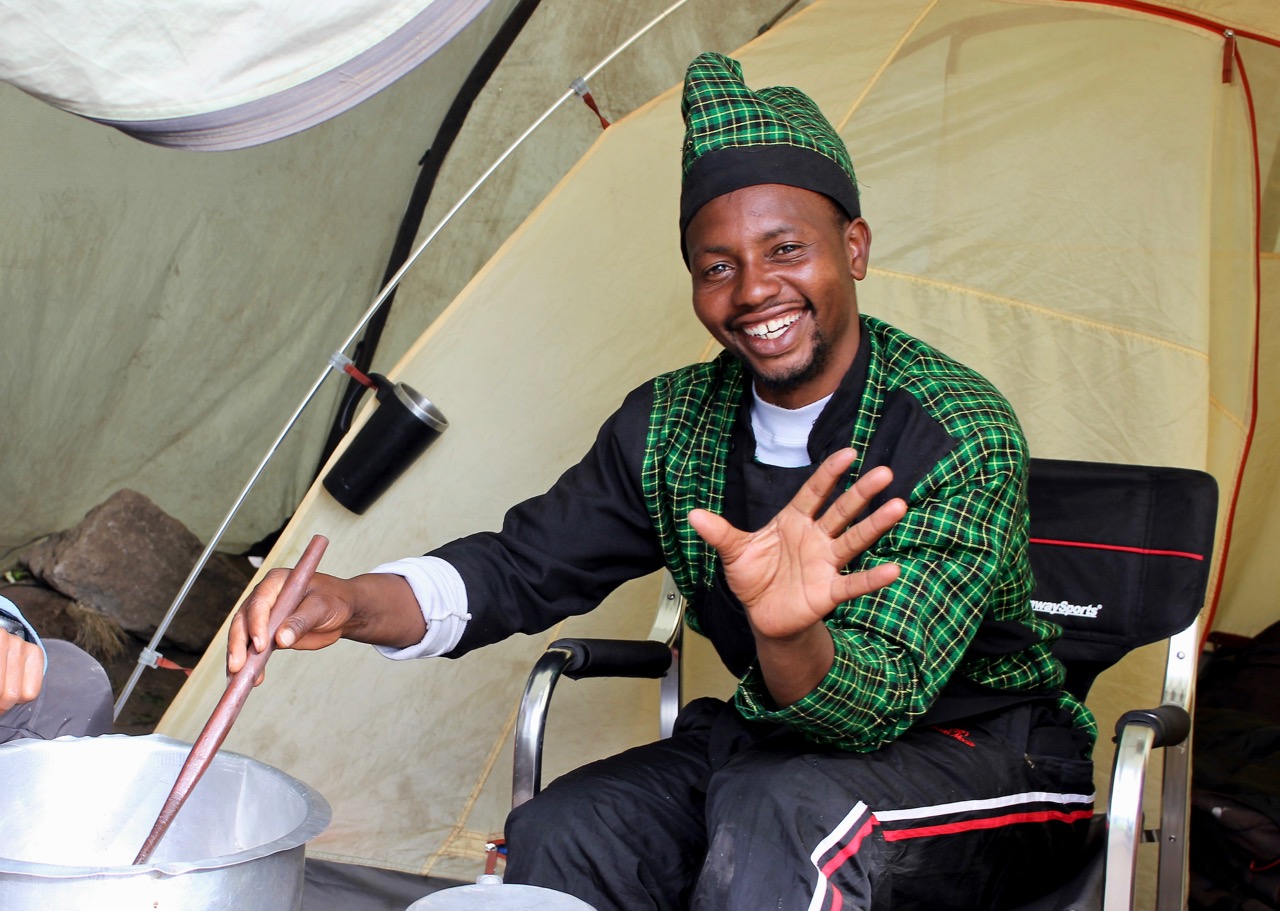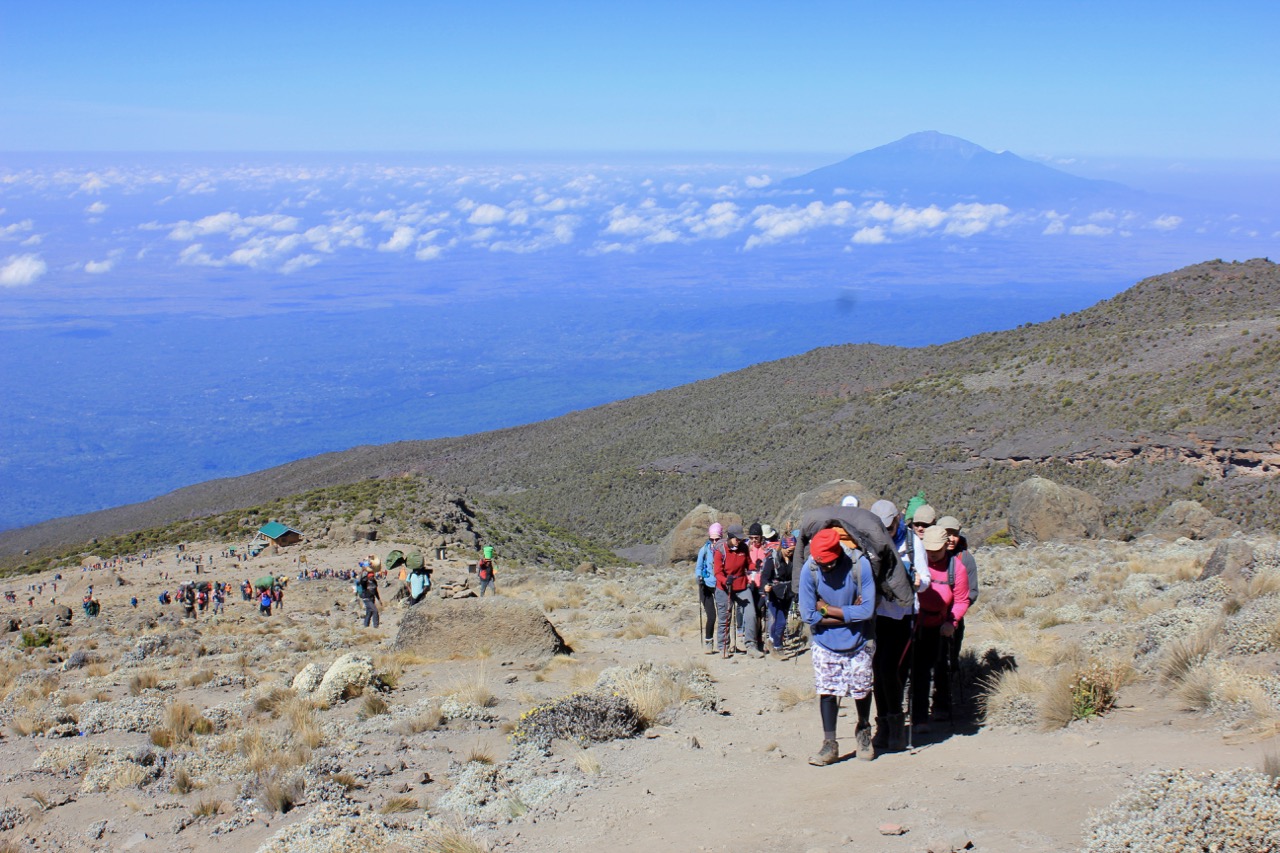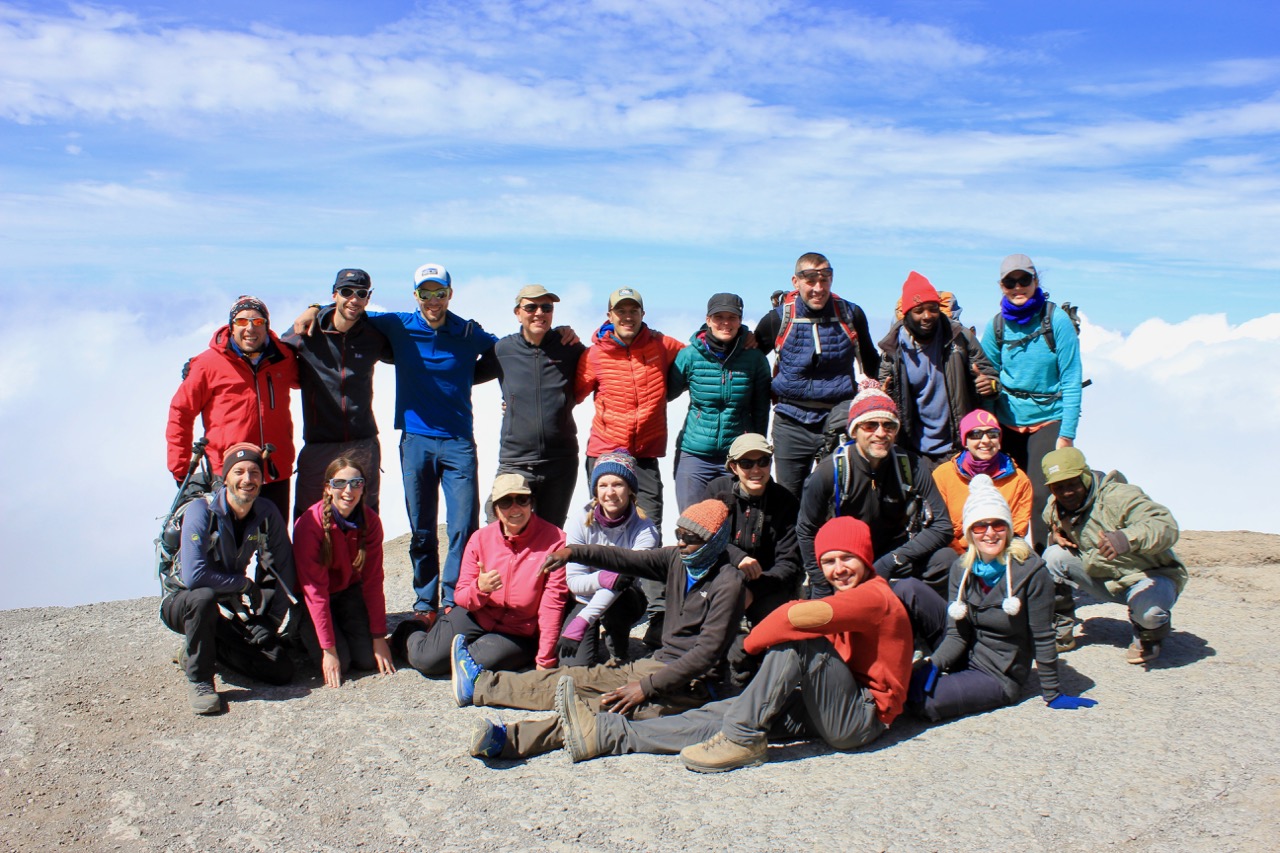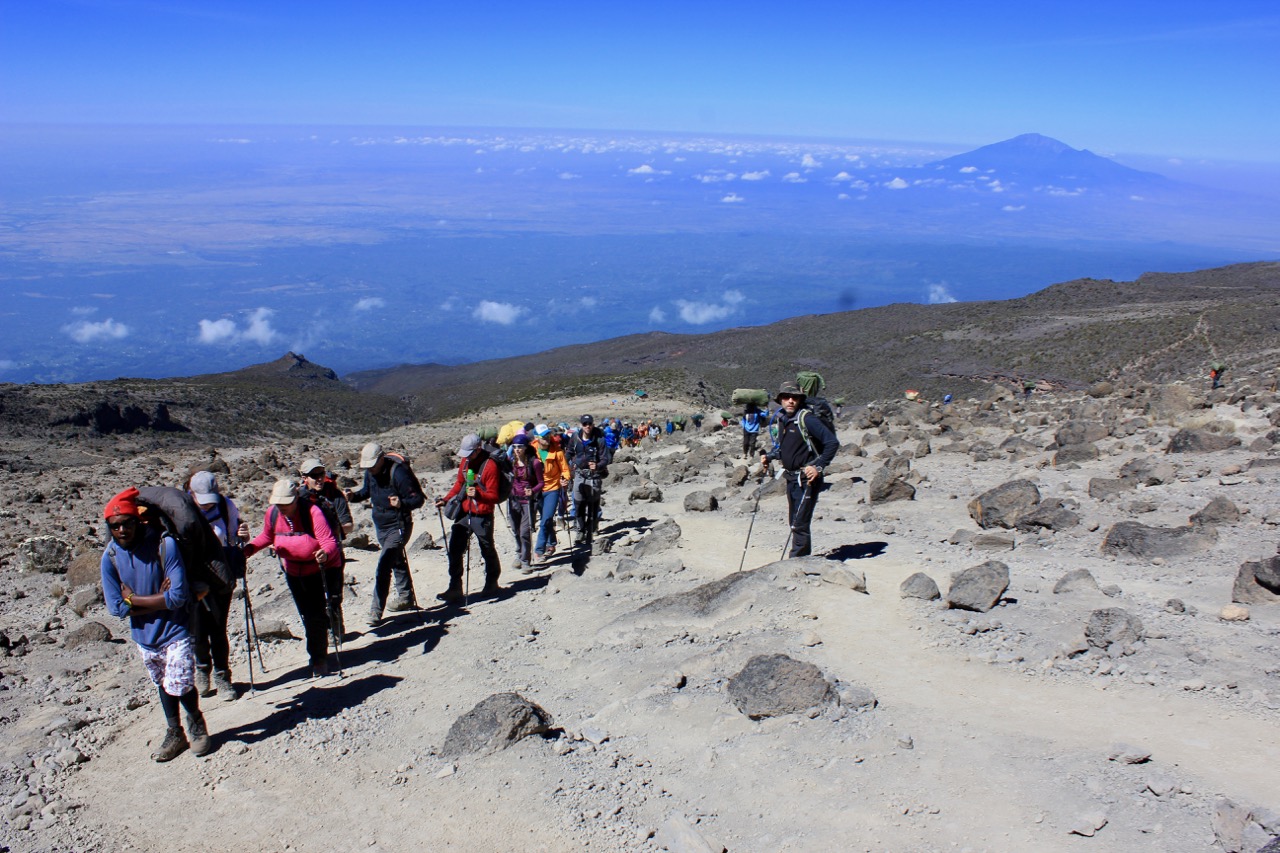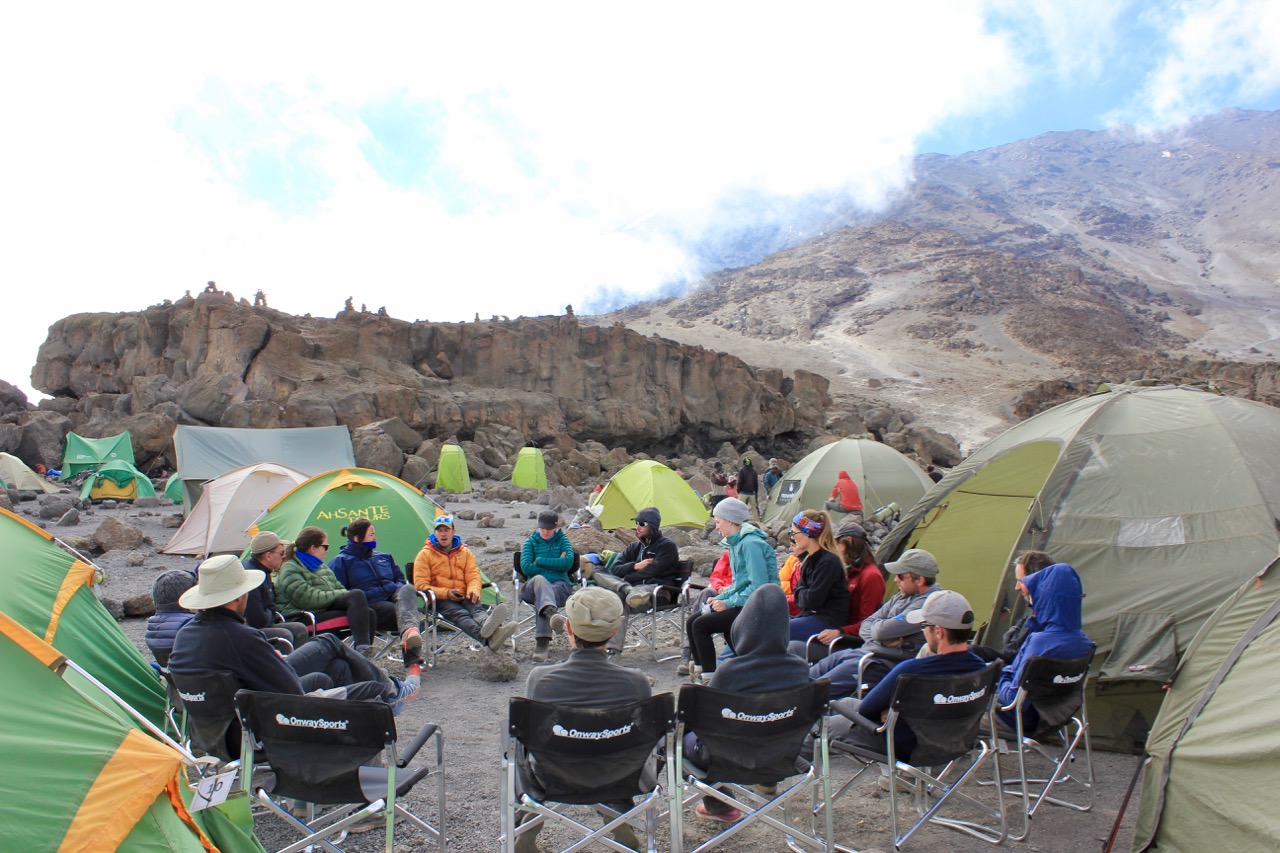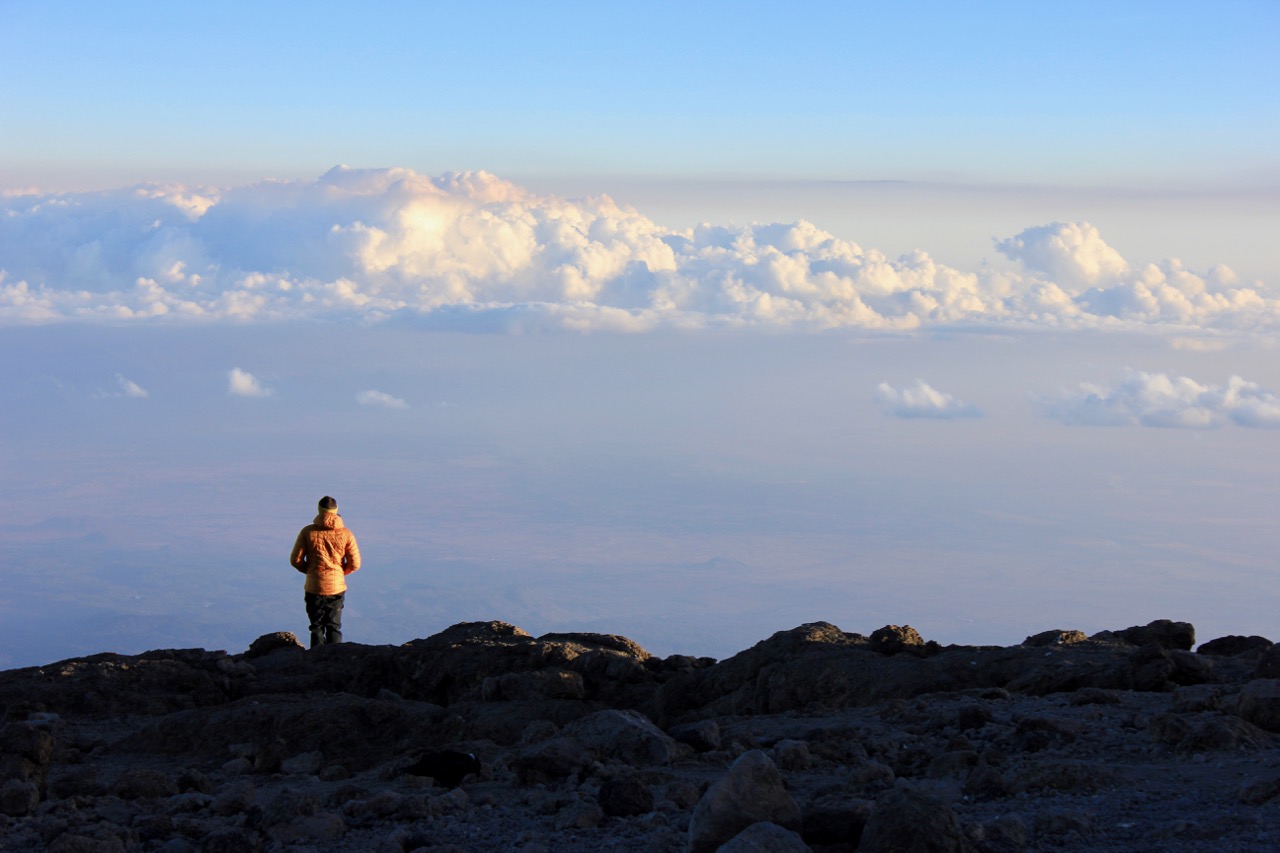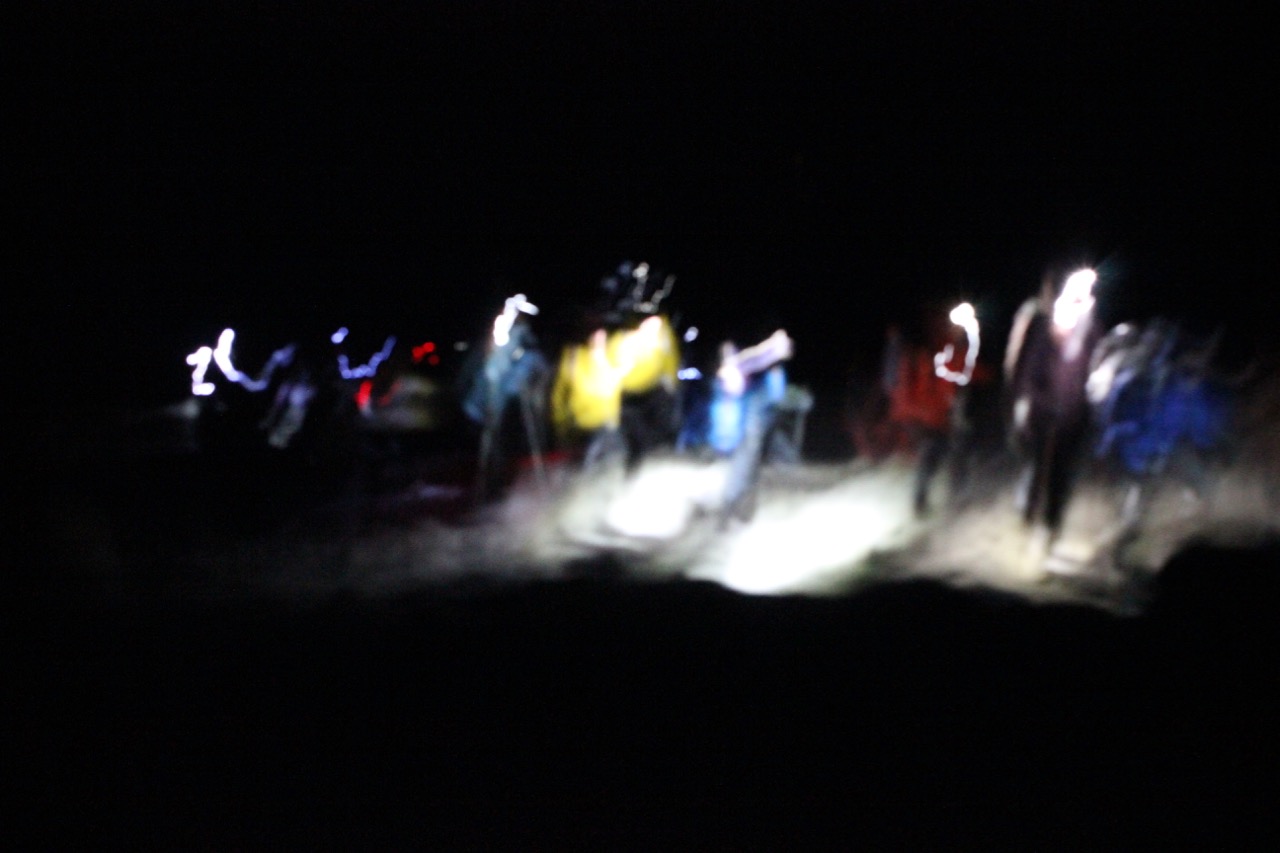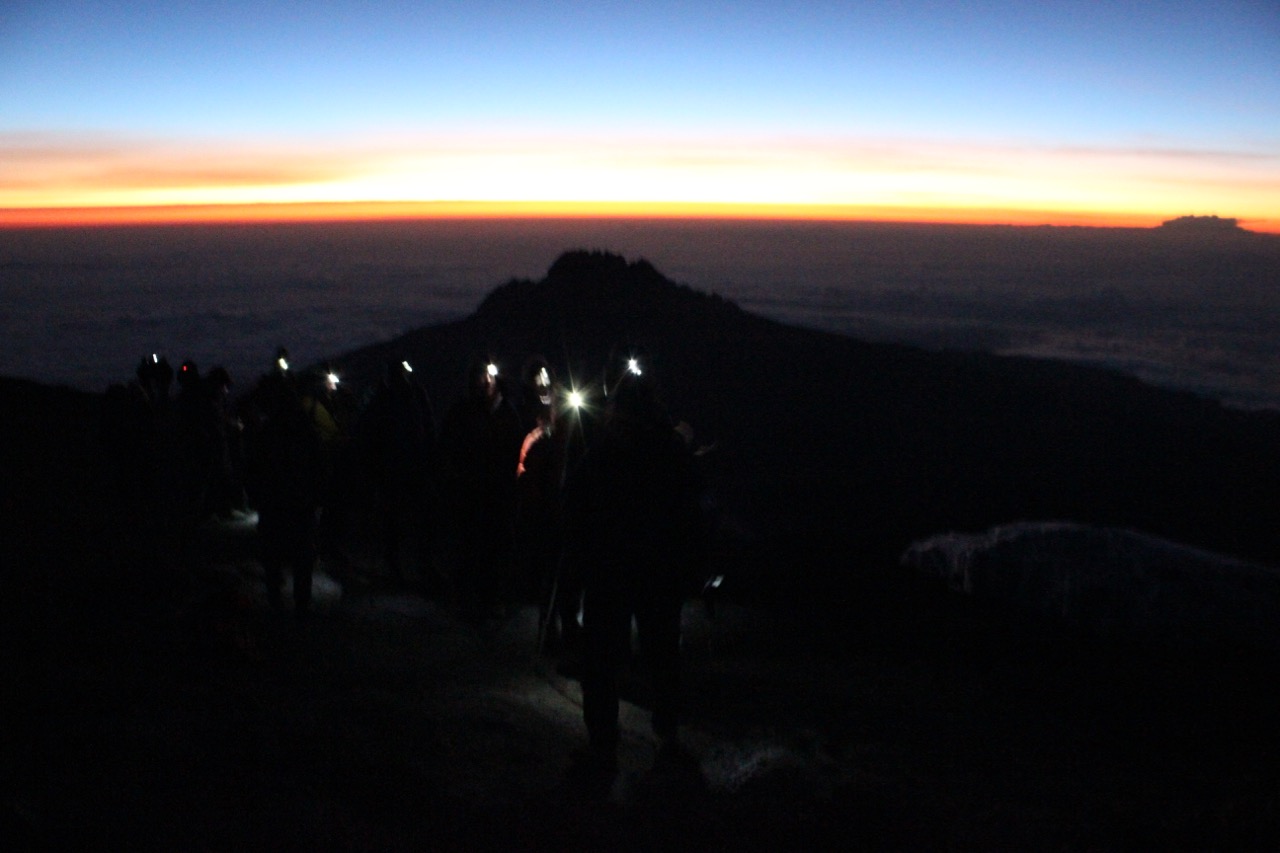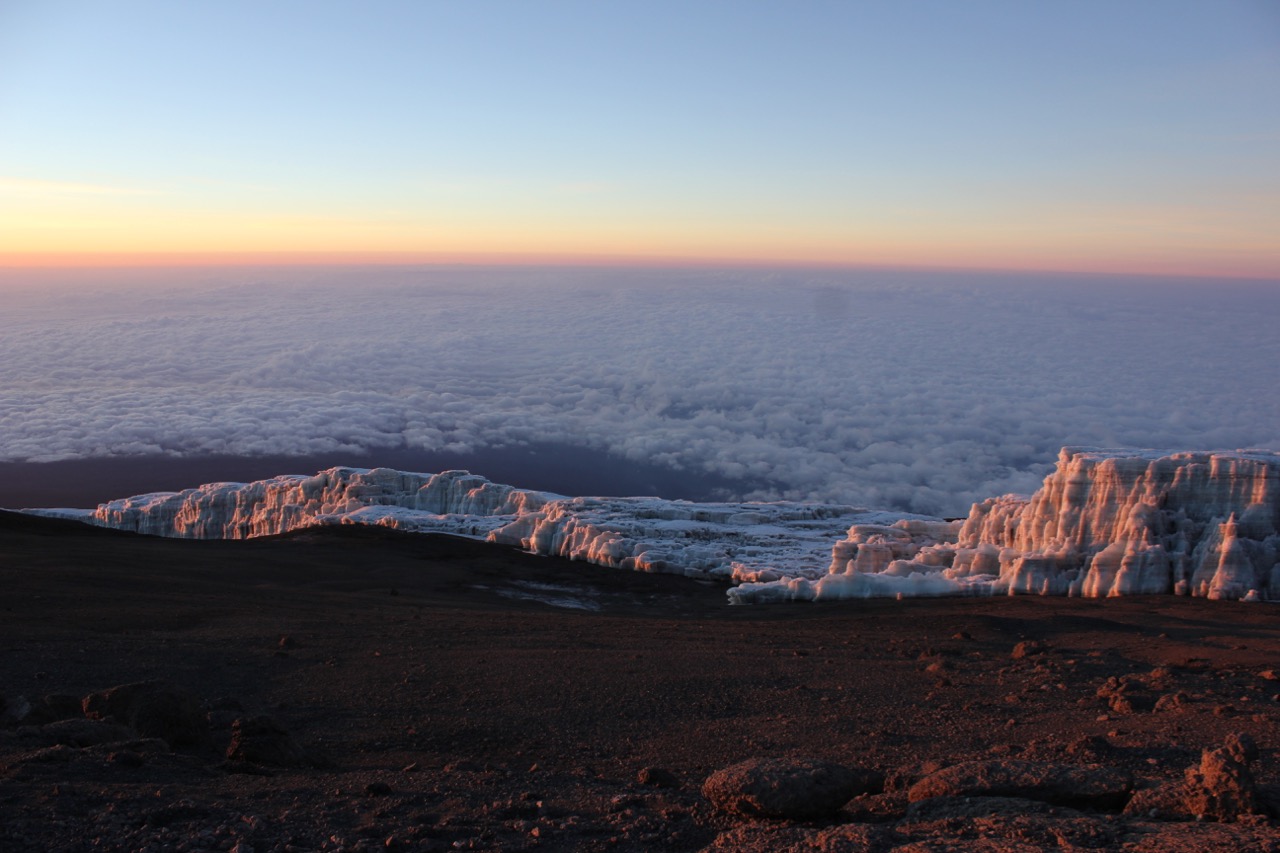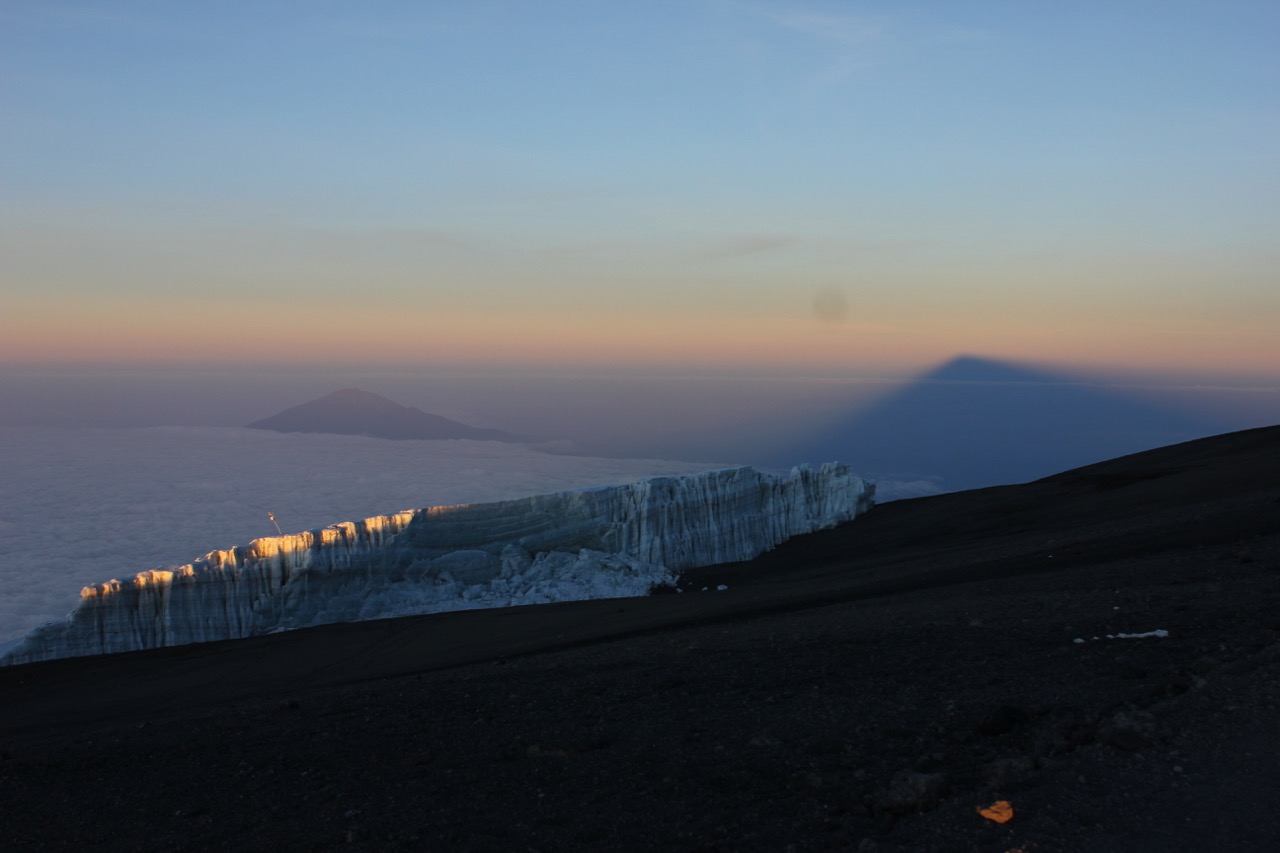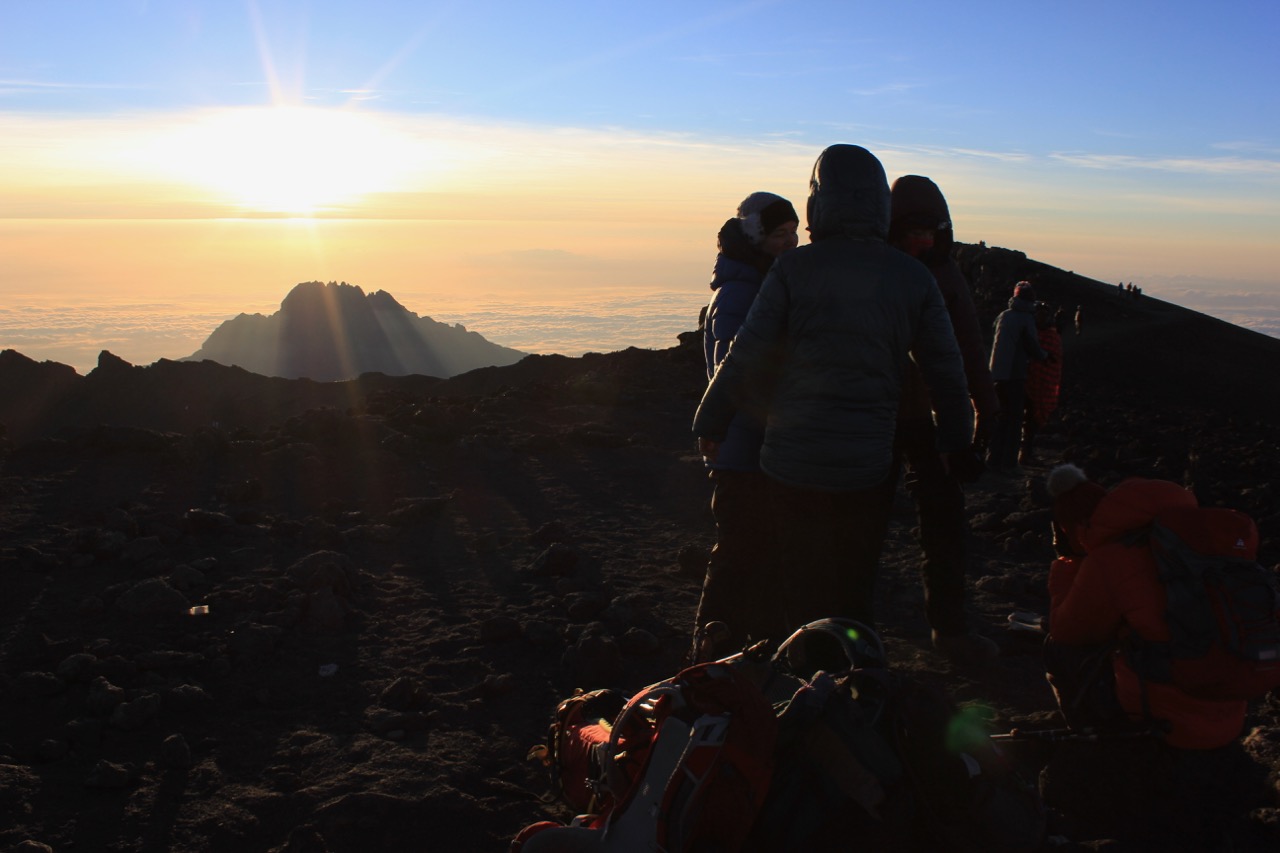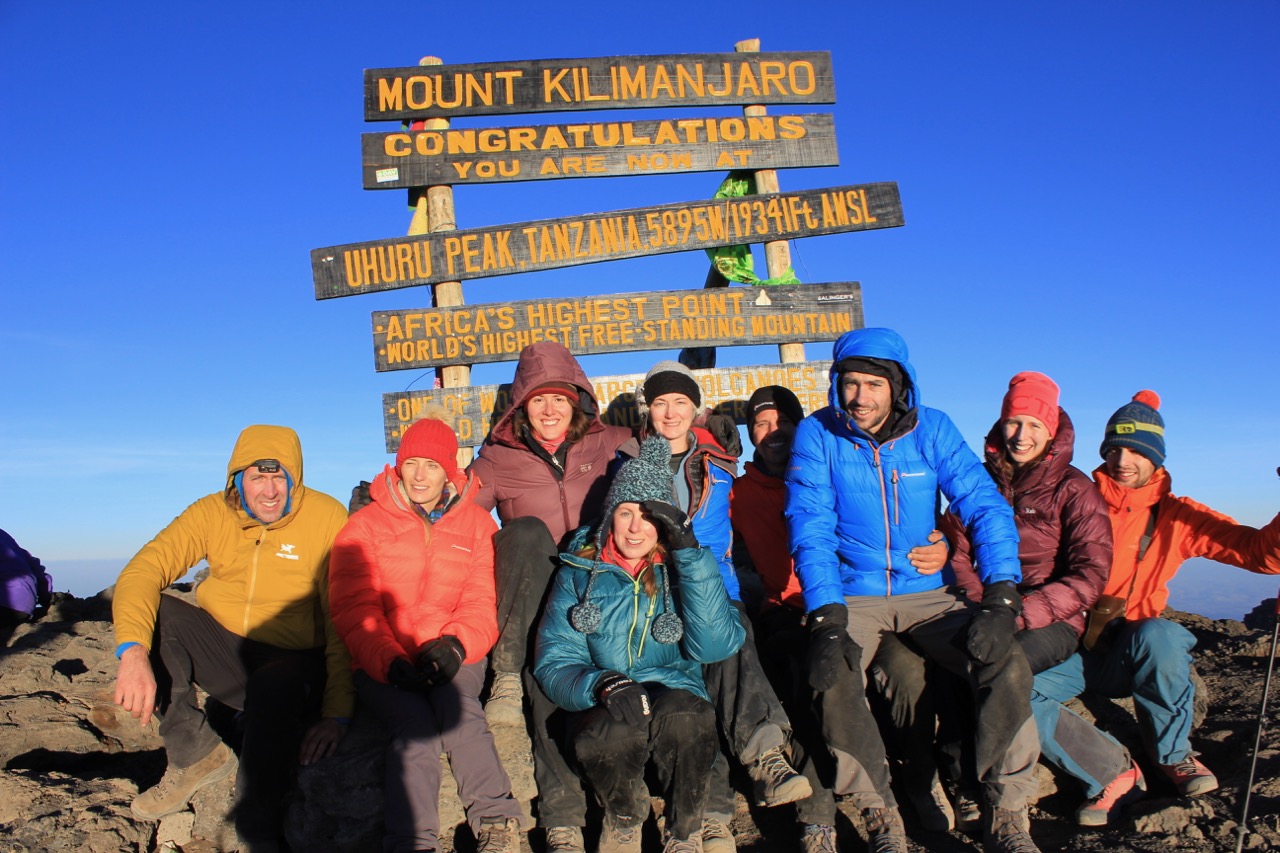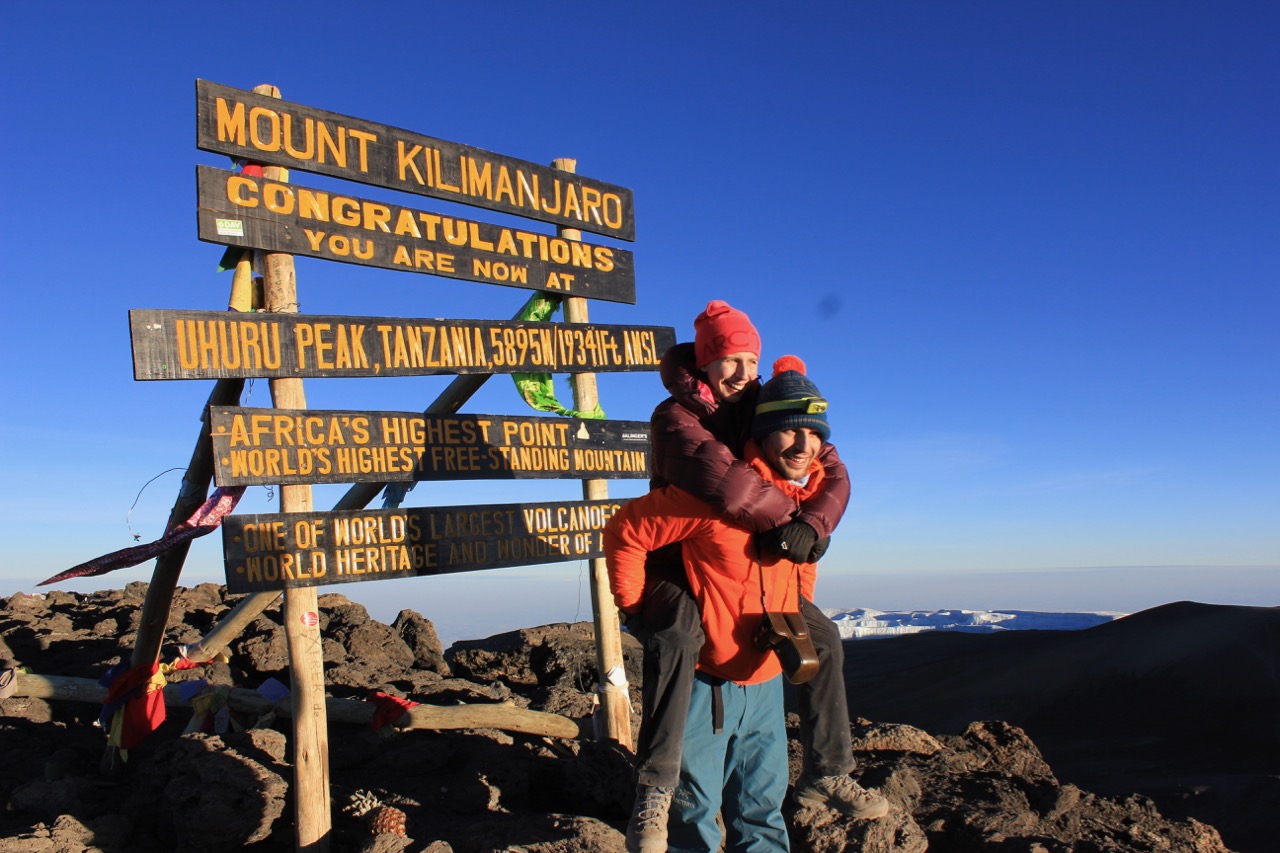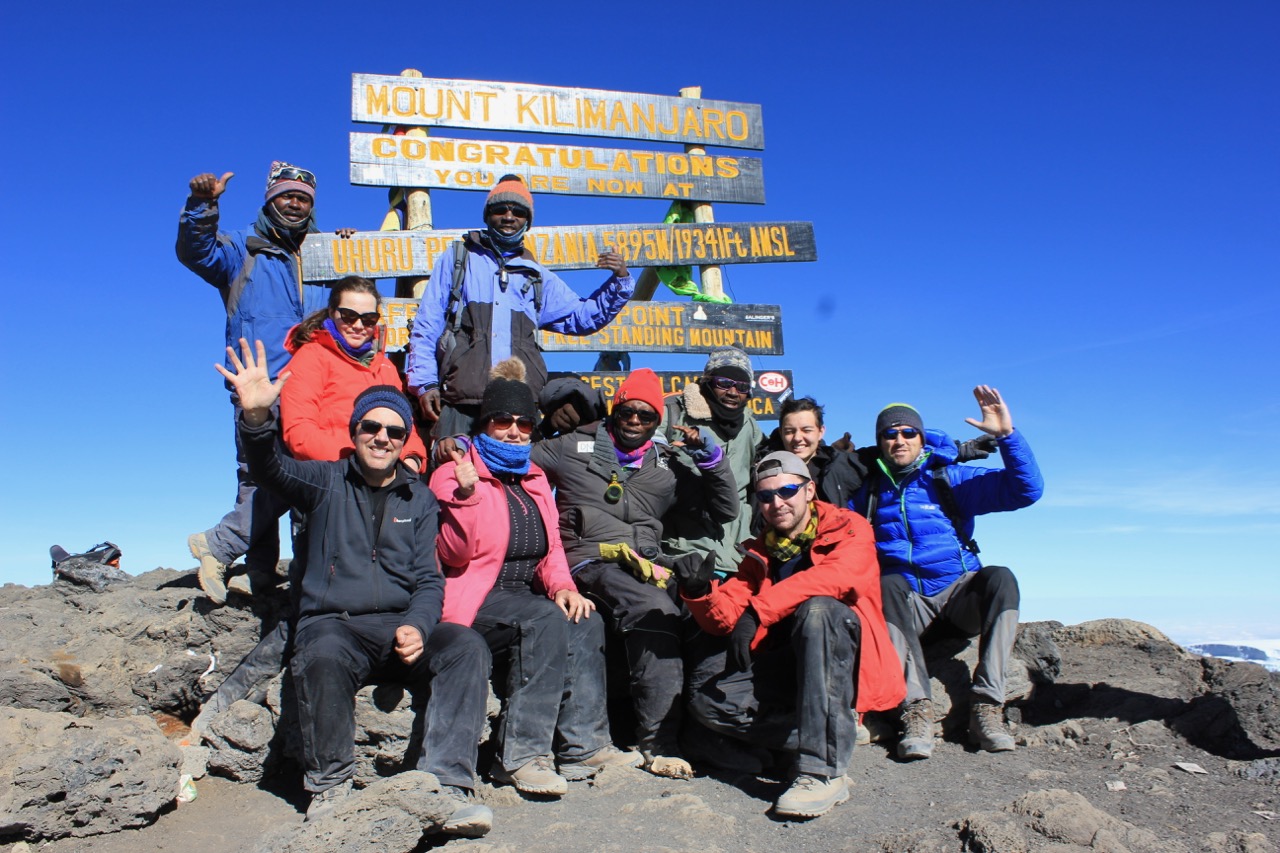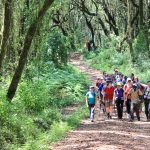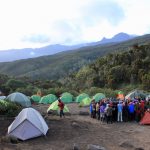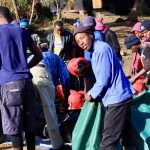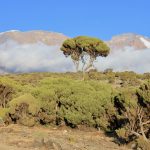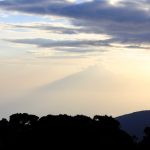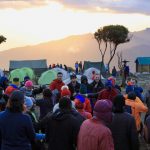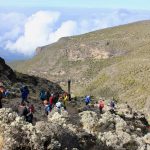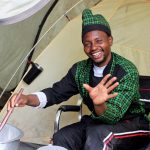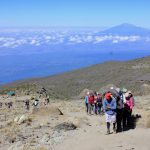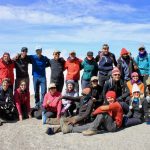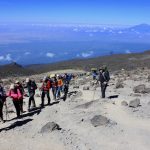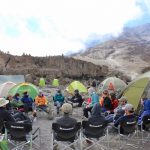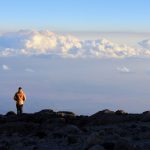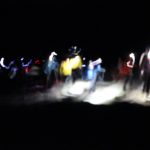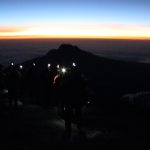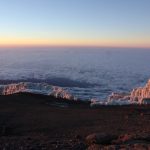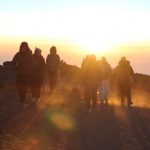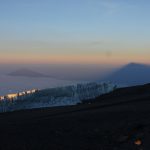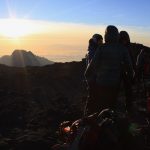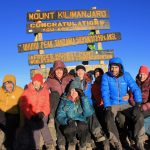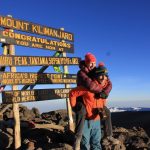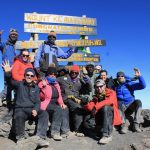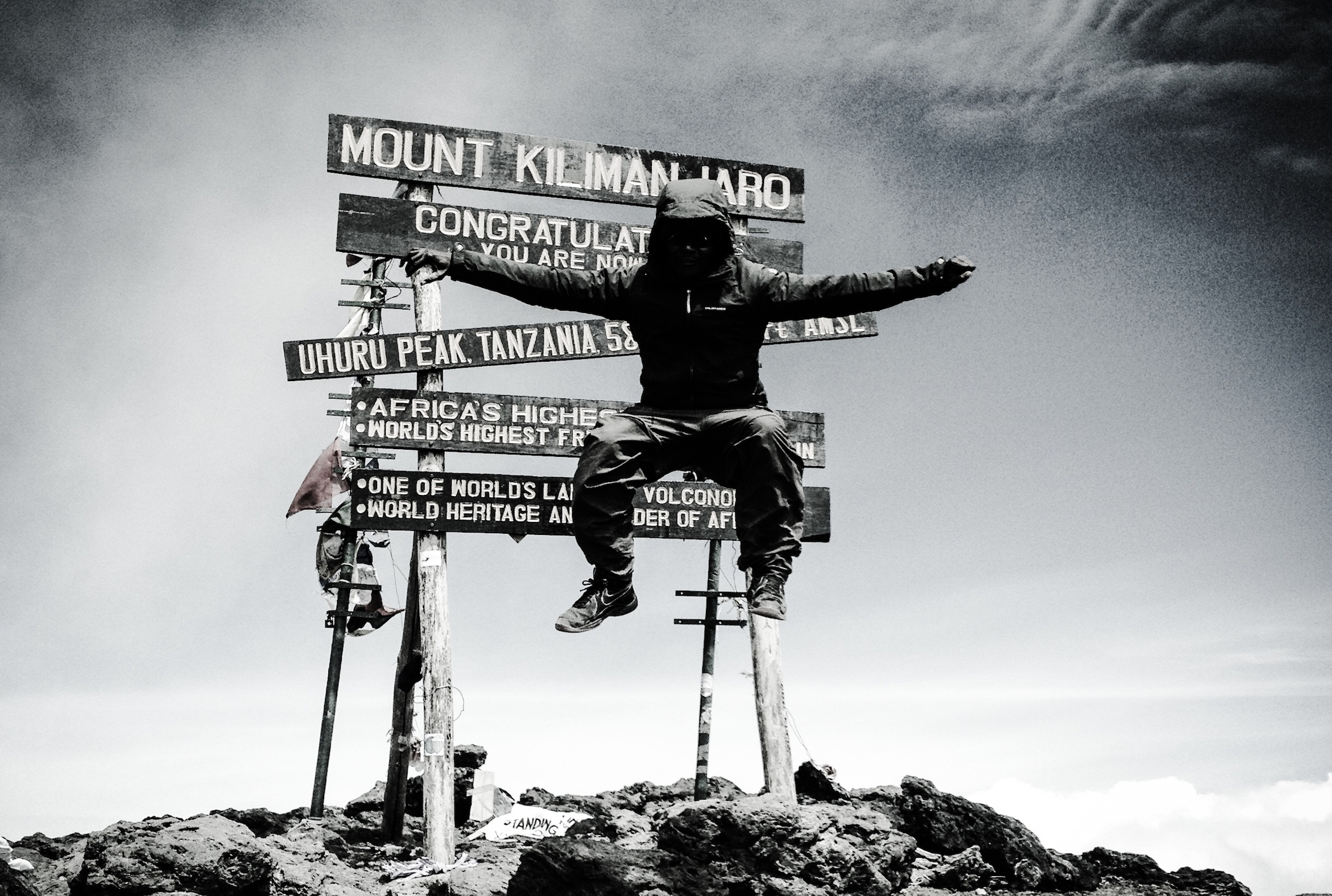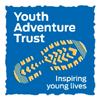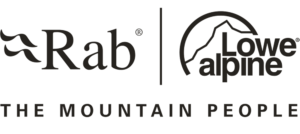Overview
Join the Kilimandorra Team and climb the worlds highest free standing mountain, the highest mountain in Africa and one of the famous 7 summits!
Climbing Kilimanjaro is a truly special experience. At the park gate you enter pristine rainforest and during the trek you pass through shrub, desert and alpine environments! Over our 7 day route we’ll gradually gain altitude, acclimatise to our new surroundings and enjoy incredible views across the African plains. With unprecedented support from Mountain Expeditions and our local team, excellent logistics and plenty of singing and dancing along the way, Kilimanjaro is an experience you’ll never forget!
Organised and lead by Jon Gupta
Mountain Expeditions are expedition specialists and Kilimanjaro is where it all started for us! We love organising and delivering expeditions to ‘Kili’ and do so with a friendly and supportive approach. We understand that joining any of our expeditions is a big deal, so we try and make sure everything is perfect from start to finish. In 2019 we celebrated 10 years of leading teams on Kili with our 30th summit!
Jon has organised and guided on over 100+ high-altitude expeditions including Everest (4 times!), K2 and 37 times on Kili – to read more please go here.
Local Mountain Guides & extra summit guides
With all our expeditions we partner with the very best local in-country agencies who share our ethos of delivering outstanding expeditions. We believe that a combined leadership team built of UK Expedition Leaders and highly experienced local guides is the strongest and most successful way to deliver our Kilimanjaro expeditions. Our guides will be with the team throughout the entire expedition and additional local guides will be used during your summit attempt. Mountain Expeditions are trying to set new standards on Kilimanjaro by ensuring that the local crew working with our groups are properly kitted out and well looked after on the mountain – we offer them the chance to use good footwear and the kit and equipment they need to use whilst working with our groups.
Very high summit success rate
With over 40+ expeditions on Kilimanjaro we have an impressive 98% summit success rate. We believe this is because of our attentive approach, higher guide ratios and using experienced High Altitude Expedition Leaders. This combination has proved time and time again to be the safest and most successful approach whilst on the mountain.
10 day itinerary with 7 day trekking route
Our itinerary has been chosen to make this trip the very best we believe it can be. We include an entire preparation day in Moshi which allows time for people to rest after a long flight, time for any luggage delayed in transit to catch up with us and time for your Expedition Leaders to do a full kit and medical check before a relaxed expedition briefing with a cold Kilimanjaro beer! It also allows time for the the team to get to know each other a little before we set off up Kilimanjaro together.
On the 7 day Machame Route there are ‘climb high sleep low’ days, 2 shorter half days before your summit attempt and of course – some big days! Overall it offers the best acclimatisation profile of any 7 day route on Kilimanjaro.
Fully supported: local cooks, porters & guides
The truth behind organising and leading worldwide expeditions is that you need an excellent local in-country agent to work with. Over the years Mountain Expeditions have developed a long standing relationship with our local crew in Tanzania and the added value of our friendly and efficient local staff never goes unnoticed – we know it makes a big difference to your experience. Our local team are a huge part of your Kilimanjaro experience and it makes all the difference on the mountain.
“If ethical travel is what you’re looking for in a company, then look no further than Mountain Expeditions. The guides and porters were so much a part of the team that you could tell it was like a big happy family” – Marcus Samperi
Perfect first big mountain
There are many reasons people choose to climb big mountains and many reasons why you might choose to trek up Kilimanjaro. What we can tell you is that choosing Kilimanjaro offers you a realistic opportunity to summit a big mountain without any altitude experience. Please refer to the Suitability tab for more details.
Accommodation: Lodge & tents
Many of our expeditions start and finish in a bustling city in a really nice hotel or lodge. Maybe it’s first and last impressions that count or perhaps we just enjoy having nice accommodation when starting and finishing a trip, but it’s what we do! On Kilimanjaro we are using our favourite lodge (Weru Weru River Lodge) before and after the trek and ensure that camp life is as comfortable as possible on the mountain. FYI – We can safely leave things here whilst we are on the mountain. Refer to the FAQs tab for more details.
Trip Suitability
Kilimanjaro is a tough mountain to climb and, although it is a mountain peak that doesn’t require technical mountaineering experience, a good level of physical fitness is necessary. The Machame Route is a fantastic route to trek but it has quite strenuous parts. To maximise your chance of reaching the summit, we recommend:
- You have a clean bill of health
- You have a good level of fitness (more on this below)
- You have experience walking up hill in a mountainous environment for several hours at a time
In preparation for any mountain expedition, we offer Expedition Specific Training courses in both summer and winter. This is a great chance for you to spend time in the UK mountains with an experienced Expedition Leader and learn some new skills, getting better prepared for you next big expedition objective. If you have booked on to an expedition with us already, then we offer a 10% discount on these courses.
Training for Kilimanjaro
The best training possible is getting out in the mountains themselves. Previous experience in the hills and mountains is hugely beneficial, but climbing stairs and long runs also count!
One of the fastest ascents of Everest was made by a London businessman who trained 1 hour a day for 9 months climbing the stairs of a 24 storey building with a loaded rucksack, so think creatively: Covent Garden Tube Station has 193 steps; Box Hill is just a 50 minute train journey from Central London. Walking, cycling, Cross-Fit – in fact any fitness training will be of benefit to you. Focus on cardiovascular fitness and lower body strength. Long walks and runs are ideal training.
Essentially you will need to be comfortable trekking with a small rucksack for several hours at a time in hilly terrain…for 7 days! If you are unsure of whether you fall into this category, please contact us and we can have a chat about it.
A good indication of both physical and mental fitness is being able to run 10km in 1 hour
Itinerary
Please note that the itinerary below is intended as a guideline only. Although every effort will be made to adhere to it, changes may be forced on it by weather conditions, transport failure or other unforeseen events. Please be prepared to be flexible if necessary.
You can download the itinerary as a PDF here.
Day 1 – Thursday 9th January – Arrival & transfer
Upon arrival into Kilimanjaro International Airport (JRO), you will be transferred to our hotel in Moshi to rest and relax after your flight. We will be served dinner in the hotel where you can get to know the other members of your group and relax in the beautiful grounds of our hotel.
Day 2 – Friday 10th January – Preparation day
Today is your preparation day. There will be briefings, kit checks and medical checks as well as the chance to change money, meet our local guides and ensure that you have everything you need for the trek. We will also have the opportunity to explore the local town of Moshi and get last minutes bits and pieces before the trek begins the following day.
Day 3 – Saturday 11th January – Machame Gate (1800m) – Machame Camp (3030m)
After breakfast we take a short transfer (30 minutes) to the Machame Gate 1800m, our entrance to Kilimanjaro National Park. From here we begin the trek through montane forest (keep your eyes peeled for monkeys and an array of beautiful birds) to Machame Camp (3000m) and our first overnight stay on the mountain at Machame Camp.
Trekking time 5-7 hours; Distance: 11km; Campsite altitude gain: 1200m.
Day 4 – Sunday 12th January – Machame Camp (3030m) – Shira 2 Camp (3850m)
We wake at sunrise to birdsong after our first night on the mountain and enjoy breakfast prepared by our superb local cooks. Once ready, we leave the rainforest behind and trek across heath and moorland and up onto the Shira Plateau to Shira Camp (3850m), where we spend our second night camping on the mountain.
Trekking time 4-6 hours; Campsite altitude gain: 820m.
Day 5 – Monday 13th January – Shira Camp (3850m) – Barranco Camp (3985m)
The landscape begins to get far more rugged today as we continue through rolling semi-desert valleys passing the impressive Lava Tower, a volcanic plug that towers over the trail at 4642m. We take lunch here before descending down to incredible Barranco Camp for the night. This day of ‘climbing high, sleeping low’ is the key day to our acclimatisation on Kilimanjaro
Trekking time 5-7 hours; Campsite altitude gain: 135m.
Day 6 – Tuesday 14th January – Barranco Camp (3985m) – Karanga Camp (4040m)
We often take a relaxed morning to allow the porter traffic to climb the Barranco Wall before we set off. The wall requires some very easy scrambling at points and after around 2 hours we reach the top! From here it is a relatively easy, although undulating, traverse across the mountain towards Karanga Camp.
Trekking time 4-5 hours; Campsite altitude gain: 55m.
Day 7 – Wednesday 15th January – Karangu Camp (4040m) – Kosovo High Camp (4800m)
We get the sun early here and often enjoy breakfast alfresco. The trail leads easily up and across the the ridge where Barafu High Camp is situated and most teams stop. However, a climb over rocky slabs leads to a special site called Kosovo High Campsite (4800m) where we get an early night for our summit attempt the following day.
If the conditions allow, we may get views of the spectacular Heim, Kersten and Rebmann glaciers above. Tonight will be cold, so after some food and hot drinks, we retire to our tents early to get as much sleep as possible before the long day ahead.
Your leader will deliver a detailed summit brief with top tips and handy hints. It is essential to have your daypack and kit all ready before bed.
Trekking time 4-5 hours; Campsite altitude gain: 760m.
Day 8 – Thursday 16th January – Kosovo High Camp (4800m) – Uhuru Peak (5895m) – Millennium Camp (3820m)
Summit day has arrived! We begin with a very early but exciting start for our final push, passing the Rebmann Glacier then on to Stella Point as the sun rises over this dramatic landscape. A short while after this, we reach Uhuru Peak – the highest point of Kilimanjaro and of the African continent. What an achievement – you’ve made it to the summit! Providing it is clear, the summit offers magnificent views of the sun rising over the secondary cone of Mawenzi (5149m) and west over the vast plains to Mount Meru (4566m). After a brief photo stop and a rest to take it all in, we begin a descent back down the way we came up to Kosovo Campsite for lunch then onto Millennium Camp where we camp for the final time.
This is a big day out, but one you will never forget!
Trekking time 10 hours minimum; Distance: 15km; Ascent: 1072m; Descent: 2075m.
Day 9 – Friday 17th January – Millennium Camp (3820m) – Mweka Gate (1640m)
During our last day trekking, we descend from Millennium Camp all the way down to Meweka Gate. Here we gather all our local crew and do the tipping ceremony and distribute any kit/equipment that we have to give away. Once all this is done we head for lunch and then transfer back to our hotel for showers and a celebration evening meal!
Trekking time 3-5 hours; Distance: 14km; Descent: 2180m.
Day 10 – Saturday 18th January – Transfer to airport & trip ends
Today we say our goodbyes and you will be transferred to the airport for your return flight.
Map
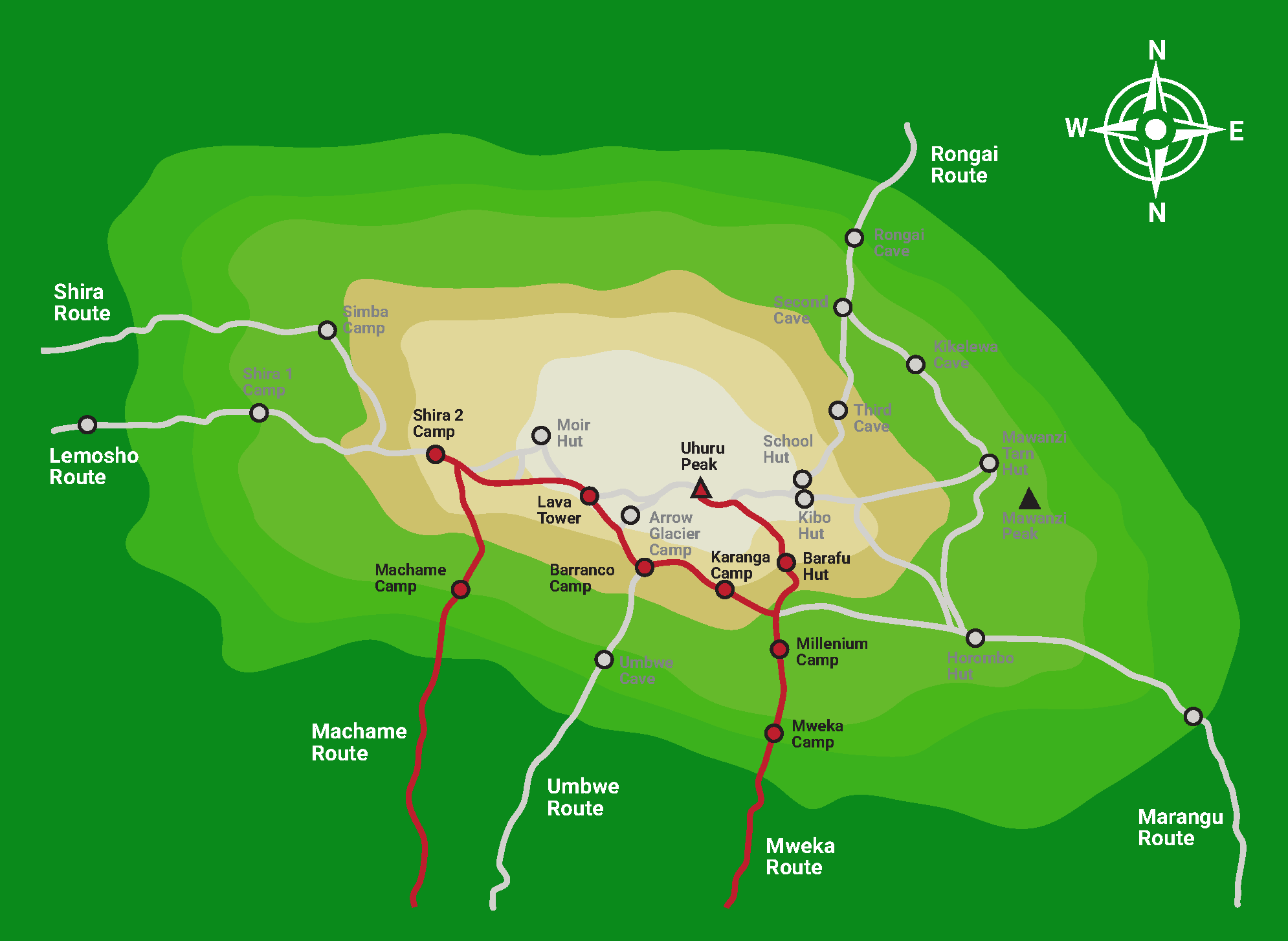
Included
When you book your place on the Kilimanjaro Trek, we want you to know exactly how much the trip is going to cost you, with absolutely no hidden extras or last-minute costs. Our fully inclusive land-only price includes almost everything from the minute you land at Kilimanjaro International Airport until the time when we drop you back – there are no hidden extras!
The following are included in the price of £2,970:
- A UK Expedition Leader Jon Gupta who have extensive high altitude experience
- Local Guides, Assistant Guides and Porters – Mountain Expeditions pay fair wages for porters and guides and are approved by Kilimanjaro National Park, Kilimanjaro Porters Assistance Project, as well as Tanzania Association of Tour Operators
- Return in-country airport transfers
- All meals in-country except one lunch during the preparation day
- A dedicated cook and assistant cook
- Three nights’ accommodation in Moshi (2 nights before, 1 after)
- Transfers to and from the park gates
- All National Park entry permits, camping fees and rescue cover to Kilimanjaro National Park
- Emergency equipment – comprehensive first aid kit, medicine, oxygen and radios
- Camping equipment (a 4-season tent, camping mat and a -22°C sleeping bag)
- Private toilet tents on the mountain
- Clean filtered water
You should also refer to the Not Included section.
Not Included
The following are NOT included in our price:
- International flights to Kilimanjaro International Airport (JRO)
- Tanzania visa, $50 USD*
- Travel insurance
- Tips $250 USD pp (these are compulsory)
- Personal spending money
- Drinks from the bar(s)
- Lunch during your preparation day
- Pre-trip inoculations / malaria prophylaxis
- Personal equipment & kit – please refer to the Kit List
- Any additional costs associated with leaving the expedition early
* VISA – We recommend that you get your visa before arrival as the queues at Kilimanjaro International Airport can be long and very slow. You can easily apply for your E-Visa here. It is however possible to get your visa on arrival too should you wish too. If you do this you will need $50 USD in cash and a pen.
If you require any advice or help with any of the following then please head to our Kilimanjaro FAQ tab as well as heading to our general expedition FAQs section, or simply Contact Us and we can help.
Difficulty Level
All of our UK Courses & Worldwide Expeditions come with a suggested difficulty level to help you choose the correct one. For a full explanation of the Scottish Winter, Alpine and UK Rock Climbing grading systems, this blog explains them all – Grades Explained
Grading for UK Courses
With all our UK courses please refer to the Trip Suitability section for more specific details on course expectation and technical and physical levels required.
C1 – Intro Course: open to any level and ability
C2 – Intermediate Courses: previous experience of scrambling/rock climbing or winter mountaineering
C3 – Advanced Courses: previous technical summer or winter climbing experience
Grading for Worldwide Expeditions
With all our Worldwide Expeditions you should refer to the Trip Suitability section for more specific details on the expedition expectation and technical and physical levels required. If in any doubt please don’t hesitate to contact us.
Physical
A. Good basic fitness, as for UK hill walking and mountaineering. Average rucksack weight: 6-8 kg
B. Good cardio-vascular fitness which for most people requires some training, by running, hiking and perhaps some gym work. Average rucksack weight: 8-12 kg.
C. High level of fitness coupled with physical toughness and the ability to carry a heavy rucksack for long periods. Average rucksack weight: 12-18 kg.
D. As for C, but tougher. Climbs of this grade are exceptionally strenuous and some weight loss is inevitable. Train hard and arrive fit. Welcome to ask for advice if training specifically.
E. Hard physical effort at extreme altitude which requires thorough preparation based on your experience of previous trips. Comments for ‘D’ also apply. May cause long-term fatigue after the trip.
Technical
1. Low angle snow or straightforward scrambling on rocks. Ropes are not usually required. Previous climbing experience is not essential.
2. Ropes are used principally for glacier travel and low angle snow or ice slopes. Ice axe and crampon experience necessary.
3. Short, steep sections of snow or ice up to about 50 degrees. Previous snow and ice climbing experience of Scottish III/Alpine PD is essential.
4. Long, steep snow and ice slopes with short steps of very steep ice or low grade rock climbing. Good all-round climbing ability required to Scottish III/Alpine AD.
5. Very steep ice (Scottish III/IV or harder) or rock (Hard Severe or harder). Suitable for competent mountaineers who have climbed consistently at these standards.
In-country Safety
Government Advice
We support the British Foreign & Commonwealth Office (FCO) ‘Know Before You Go’ campaign and recommend that you have a good read of the FCO Travel Advice for Tanzania.
24/7 Expedition Medical Advisors
We work very closely with two specialist Expedition Medical Advisors (EMA’s). If you have any concerns about how your health conditions may be affected whilst in the mountains with us, you are welcome to talk with our EMA’s prior to your trip – all you need to do is let us know and we’ll put you in touch. Whilst on expedition our EMA’s are contactable 24/7 to provide our leaders with advice or assistance during any arising medical situation.
Emergency Operation Procedures
We work very hard to ensure we have a clear plan for all eventualities that may arise during the expedition. Liaising with local agencies including mountain rescue means we adhere to local regulations, have a clear evacuation process and ensure all the ‘what ifs’ are covered.
Risk Assessments & British Standards
Whilst expeditions to big mountains have inherent objective risks, we do our very best to mitigate these risks as much as possible. Careful planning and thorough consideration of all aspects of the trip means that there are very few surprises. We take advice and guidance from the British Standards BS8848 publication as well as from our experienced leaders and local agents.
FAQs
Can I leave some things at the Lodge/Hotel?
Yes, this is no problem at all. Personal items, travel clothes etc. can all be left at the lodge/hotel ready for our return from the mountain.
Money, passports etc. can also be left safely in the lodge/hotel safe but this is done so at your own risk.
I’m worried about slowing down the team?
This is a really common concern and one we have thought about too. You'll be pleased to know that you don't need to worry about this at all as we easily can accommodated all speeds on the mountain thanks to our amazing local crew of guides.
We want you to be happy at your pace!
Tips - how much and why?
Our local team works super hard during the trek on the mountain to ensure everything runs smoothly. It has become the custom to tip the crew as a sign of gratitude at the end of the trek.
Your leader will manage the tipping with a thank you ceremony at the end. It is normal for the leader to collect in all the tips during the preparation/build up day and keep them safe for the tipping ceremony at the end.
We ask that you contribute US$250 to the pot. Small denominations are much appreciated as the leaders will have to split the pot between the 60+ local crew!
What is the toilet situation?
At camps we have a toilet tent with a private portaloo(s) just for our team. On the trail you can nip behind a tree or a rock, and at various points on the trail there are long-drop toilets available.
We promote a clean mountain ethos so if you're not using a toilet you'll be expected to take any toilet paper away with you.
I am vegetarian or have dietary requirements?
All you need to do is let us know your specific requirements and we will pass them on to our local cook team. They are very used to dealing with dietary requirements and whatever yours is, it won't be a problem at all.
What do I eat on the mountain?
The food is absolutely superb and is all freshly prepared on the mountain by our fantastic cooks. Generally you can expect 3 hot meals a day and 3 courses! We promise you will be very impressed with our cooks. Any special dietary requirements can easily be catered for – just let us know.
What do I have to carry on a typical day?
You are expected to carry a day pack containing items needed for that day. Each day your leader will talk to you about what to carry.
It is to your benefit to carry the minimum, enjoying the experience to the full. All items not carried by you will be carried by a porter.
What is a duffle bag? Can I take a suit case?
A duffle bag is a large holdall of around 100L which has a big opening at the top making accessing your belongings very easy. They are not expensive and are tough wearing making them a long standing favourite for expeditions like this.
You can bring any type of large holdall you wish, but hard suitcases with wheels are less than ideal. The porters will not be carrying your main bag in a typical rucksack manner, instead they put your main bag inside a waterproof sack and carry it on their head/shoulders - porter style! Please see the photos above to help paint a picture.
If you have any question about this then please ask.
Should I take Diamox?
Diamox is a drug that can aid acclimatisation. On treks such as Kilimanjaro where we ascend quicker than is recommended (it's just the way the camps are set out) we recommend that you consider taking Diamox.
If you are considering taking Diamox our advice is to do your research first. You should understand what it is and how it works and then visit your GP or specialist travel clinic. Websites such as NHS Fit For Travel and MedEx are great sources of knowledge and are very informative.
Is the mountain busy and crowded?
We use the best 7 day mountain route on Kilimanjaro and we go at the very best time of year. Of course there are other people on the mountain but it never feels too busy. There are 7 recognised routes, a number of which share the same high camp and route to the summit. It's fun having other teams around but they never impact on the success of our expedition.
Why do you choose the 7 day Machame Route?
Because it is the best route! It is an extremely beautiful route and passes through some incredible and varied scenery including the incredible Baranco Wall. It also has the best altitude ascent profile of any 7 day route on the mountain which includes day 3 where we "climb high, sleep low” - this is the best way to acclimatise.
In addition to this, a 7 day itinerary splits day 4 across two days which means we arrive in to high camp having done a shorter 3-4 hour day and we get plenty of good rest before going for the summit. It's hard to explain but we are 100% confident that you'll not regret having done a 7 day route once you see what a 6 day route has to do!
Lastly the success rate changes substantially from 7 days to 6 and our aim is to get everyone to the top safely.
What happens if I get ill and need to go down?
If a team member needs to descend this can be arranged quickly and easily. There are a number of options depending on where we are on the mountain (walk, 4×4, stretcher) and with 24/7 radio contact with our agent on the ground you are in safe hands on and off the mountain. You would always be accompanied by a guide all the way back to the Park Gate.
We have helped evacuated a small number of members over the year; quickly, efficiently and safely.
Do I need any money on the mountain?
No. There is nothing to spend it on! Everything is included.
However, it is worth bringing a few US Dollars or Tanzanian Shillings for the bar at the lunch spot on day 7 as we reach this before we get back to the lodge and you might want a beer to celebrate!
Can we do a Safari or Zanzibar before or after the trip?
Yes, this can be easily arranged at any time. If you let us know what you would like to do, we can help and advise you.
Are airport pick-ups included?
Yes! You will be met at the airport and transferred to our lodge/hotel in Moshi which takes around 1 hour.
It doesn't matter what time you arrive, our local transfer driver will be waiting for you with a Mountain Expeditions sign.
Airport transfers at the end of the expedition are also included.
Visa - Do I need one? How do I get it?
You can get these on arrival. They cost US$50. To make your life easy please make sure you have US$ cash for this. At the airport you will need to fill out a form on arrival so a pen is very handy too.
You can of course apply for your Visa before you arrive if you prefer. It's quick and easy to do online and generally makes life easier at the airport.
https://eservices.immigration.go.tz/visa/start
Hire Kit - Can I hire some items?
Yes! Mountain Expeditions has some items available for hire such as down jackets, warm layers, extra warm sleeping bags, trekking poles and warm gloves.
It is also possible to hire most items in Moshi too.
We recommend you try to arrive with all of your kit sorted but if you need to hire some items please let us know in advance.
Spending money - How much do I need?
The expedition is fully inclusive except for only a few items specified in the Not Included tab.
You will need some money to cover your bar bills at the Weru Weru River Lodge and other sundry expenses. Usually around $100 is enough, but it depends if you want to buy souvenirs and other bits and pieces.
Currency - local money infomation
Local currency is the Tanzanian Shilling (TSh). It is usually not possible to buy these outside of Tanzania.
We advise you to change US Dollars or UK Sterling into TSh upon arrival in Moshi. FYI - You can pay any bills at Weru Weru Lodge in US $ dollars or on card.
Money can be changed at banks, authorised dealers, and bureaux de change.
US Dollars in small denominations are best for tips,
taxes and larger souvenirs. Everything else is much better to be paid in TSh. ATMS are also widely available and
accept most cards, as per normal overseas transactions there will be charge.
Plugs - What plugs does Tanzania use?
Electricity Plugs are UK standard (voltage 230V AC: 50Hz), which is very convenient!
Altitude sickness - I am worried about getting sick.
At Mountain Expeditions we take this very seriously. Our tried and tested policy of gradual acclimatisation and continuous
monitoring by your expedition leaders helps to ensure your wellbeing and offers you the best possible chance of
summit success.
During the main briefing on build-up day (Thursday 13th) Jon will go into more detail about altitude sickness and what to look for.
We encourage you to download this fantastic free booklet on altitude from MedEx.
https://www.medex.org.uk/the-medex-book/

